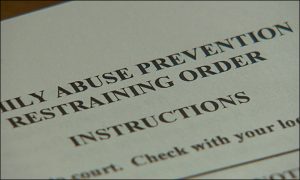
Temporary Restraining Orders & Preliminary Injunctions in Cary
You Need Immediate Help from the Courts: What are the Options?
One of the biggest problems with civil litigation in North Carolina is how long the whole process can take. In Superior Court, it is not unusual for even the most routine types of cases to take 2 years or longer to get to trial. No matter how urgent the issue may be to the litigants, the pathway to trial is set and the process has to play out.
Fortunately, Rule 65 of the North Carolina Rules of Civil Procedure allows for litigants to seek rapid court action by way of temporary restraining orders and preliminary injunctions, sometimes referred to as injunctive relief:
Temporary Restraining Orders
When one side of a civil dispute is suffering immediate, irreparable harm or loss due to the wrongful actions of the other side and there is no time to wait for the regular litigation process, a judge can grant a temporary restraining order to stop the wrongful actions and preserve the “status quo” until such time as there can be a full hearing of the fact and merits of each side of the dispute. These orders can be granted even if the other side has not been notified in advance – known as an “ex parte” order.

Getting a Temporary Restraining Order
These orders can be extremely valuable to protect the rights of litigants in an emergency situation. If a temporary restraining order is granted, the court will then set a hearing within 10 days so that both sides of the dispute (and their attorneys) can be notified and appear to argue whether or not the temporary restraining order should be maintained or dissolved.
Preliminary Injunctions
At this hearing, initiating party (known as the movant) is now seeking a preliminary injunction. Here, the movant will argue to the court that these wrongful actions would continue to cause irreparable harm if allowed to resume and that there is a likelihood the movant would win the case. If the court agrees with the movant, a preliminary injunction will be issued that maintains the court order to stop the other side’s wrongful conduct until the entire case is tried and the ultimate decision is reached. Again, this is done to preserve the status quo while the litigation process takes place and protect the movant’s rights in the meantime.
When To Get A Cary Attorney On Your Side
To successfully take advantage of the protections of injunctive relief like this, you need an experienced civil litigation attorney. There are very specific procedures to be followed and the paperwork involved must be precisely drafted.
At The Doyle Law Offices, P.A., we have over 20 years of civil litigation experience and have represented many Cary, Raleigh, Wake Forest, and Rolesville clients regarding temporary restraining orders and preliminary injunctions. Too often clients come to our office long after the fact when the damage has already been done. Injunctive relief like this is not applicable to every case, but when it is, it is an invaluable tool to protect your rights before it’s too late.

